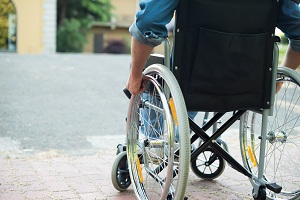The United Nations World Health Organisation (WHO) and its partners has recently called for increased research into patient safety, including the risks posed by care- and surgery-related infections, adverse drug effects and unsafe injections. It has been found that In Europe alone, an average of 1 in every 10 patients admitted to hospital suffers some form of preventable harm, according to the WHO. According to Liam Donaldson, Chief Medical Officer for England, who chairs the WHO World Alliance for Patient Safety, research in patient safety would allow all WHO Member States a major innovative resource to assist their hospitals in avoiding harm from medical care and ensure that health care reduces patient suffering and does not contribute to it. European countries can now translate research findings into tangible actions that can actually save lives. Six broader areas have been identified where further research is needed: (a) Health care-associated infection, estimated to affect 1.4 million people at any given time; in developed countries the toll is 5 to 10 per cent of patients and in some developing countries, as many as a quarter may be affected; (b) Adverse drug effects, estimated to affect 7 to 10 per cent of patients in acute care; 28 to 56 per cent of such cases are seen as preventable and hospital admissions due to adverse drug reactions may be more than 10 per cent of the total in some countries; (c) Adverse operating room effects in surgery and anaesthesia, estimated in developed countries to account for at least 50 per cent of all adverse events; (d) Unsafe injection practices, estimated to cause 1.3 million deaths each year worldwide and an annual burden of US$ 535 million in direct medical costs, with data showing that up to 40 per cent of injections worldwide are given with syringes and needles reused without sterilization; in some countries the proportion is as high as 70 per cent; (e) Unsafe blood products, estimated to cause 5 to 15 per cent of HIV infections in developing countries; a WHO study showed that about 60 countries were not able to screen all donated blood for one or more infections including HIV; and (f) Adverse medical device events, with more than 1 million occurring annually in the United States alone; in some developing countries as much as half of medical equipment is unusable or only partly usable.

Be a part of Elets Collaborative Initiatives. Join Us for Upcoming Events and explore business opportunities. Like us on Facebook , connect with us on LinkedIn and follow us on Twitter , Instagram.












